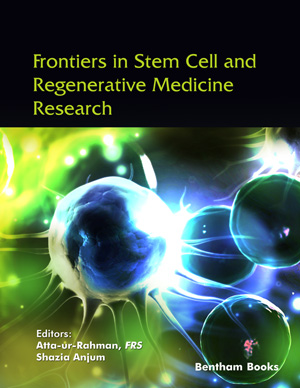Abstract
Introduction: Asthma is a heterogeneous disorder characterized by chronic airway inflammation resulting in obstructive pulmonary symptoms. In preclinical studies, mesenchymal stem cells (MSCs) have demonstrated the ability to ameliorate the symptoms and immunologic pathways seen in asthma.
Due to the known relationship between asthma and the hyper-responsive immune cascade, we hypothesized that MSCs could be an effective treatment option for patients with asthma due to their significant immunomodulatory properties.
Objective: We present the initial results for the first patient enrolled in a phase 1 clinical trial (Safety of Cultured Allogeneic Adult Umbilical Cord Derived Mesenchymal Stem Cell Intravenous Infusion for the Treatment of Pulmonary Diseases).
Case Report: A 68-year-old male with a longstanding history of asthma requested mesenchymal stem cell treatment for his persistent asthma symptoms. Cultured umbilical cord-derived mesenchymal stem cells were infused intravenously at a dose of 100 million cells over a period of 40 minutes. Post-treatment follow- up was performed after two and six months.
Results: The patient had no adverse events or complications related to treatment. In the two months posttreatment, his usage of a rescue inhaler decreased to 1 time per month, over 90% reduction. In addition, he had a 70% reduction in nebulizer usage. Improvement was sustained in the 6 months follow-up.
Conclusion: We report the first case of mesenchymal stem cell treatment significantly and safely improving asthma clinical symptoms in a human. Additionally, an extensive literature review provided several plausible mechanisms by which stem cells can ameliorate immune hyper-stimulation associated with asthma.
Graphical Abstract
[http://dx.doi.org/10.1038/nm.2678] [PMID: 22561835]
[http://dx.doi.org/10.1042/CS20160487] [PMID: 28659395]
[http://dx.doi.org/10.1016/j.rmed.2019.01.014] [PMID: 30885424]
[http://dx.doi.org/10.1165/rcmb.2010-0391OC] [PMID: 21903873]
[http://dx.doi.org/10.1111/j.1398-9995.2004.00526.x] [PMID: 15080825]
[http://dx.doi.org/10.1002/alr.21609] [PMID: 26335832]
[http://dx.doi.org/ 10.1002/alr.21557]
[http://dx.doi.org/10.1067/mai.2003.94] [PMID: 12592297]
[http://dx.doi.org/10.1177/1098612X15604351] [PMID: 26384398]
[http://dx.doi.org/10.4049/jimmunol.1300667] [PMID: 24249728]
[http://dx.doi.org/10.5966/sctm.2014-0268] [PMID: 25925837]
[http://dx.doi.org/10.1186/s13223-020-00472-8] [PMID: 32944030]
[http://dx.doi.org/10.1016/S0002-9343(99)80404-5] [PMID: 7847437]
[http://dx.doi.org/10.1002/sctm.19-0037] [PMID: 31613055]
[http://dx.doi.org/10.26355/eurrev_201909_18877] [PMID: 31539148]
[http://dx.doi.org/10.1093/qjmed/hcw001] [PMID: 26819296]
[http://dx.doi.org/10.1186/s13287-020-1583-4] [PMID: 32054512]
[http://dx.doi.org/10.1182/blood-2004-04-1559] [PMID: 15494428]
[http://dx.doi.org/10.4049/jimmunol.0902007] [PMID: 20511548]
[http://dx.doi.org/10.3324/haematol.11240] [PMID: 17606437]
[http://dx.doi.org/10.1016/S0952-7915(00)00180-1] [PMID: 11154916]
[http://dx.doi.org/10.1182/blood-2004-02-0586] [PMID: 15692068]
[http://dx.doi.org/10.7507/1002-1892.201909070]
[http://dx.doi.org/10.3389/fimmu.2015.00620] [PMID: 26779180]










